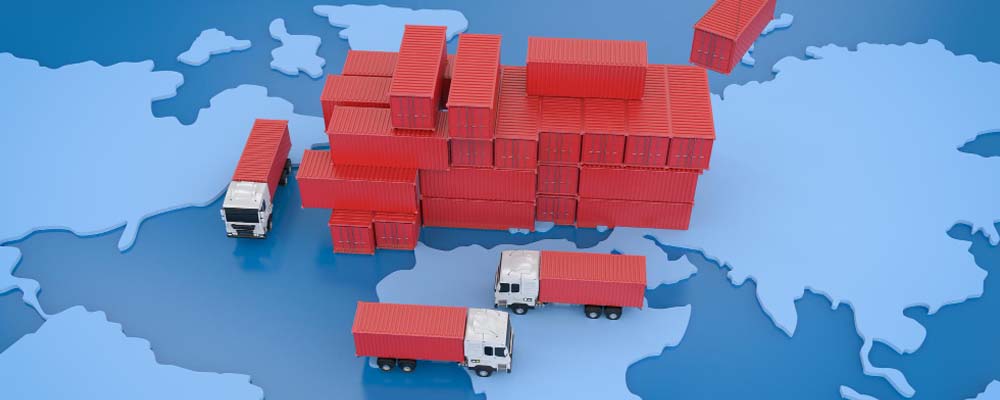
In our interconnected world, international trade is vital to the global economy. One of the most significant trade routes is between France and China, two economic powerhouses with a rich history of commerce. Understanding the intricacies of shipping from France to China is essential for success. In this blog post, we’ll explore everything you need to know to ensure a smooth shipping experience, from understanding customs regulations to managing shipping periods and dealing with potential surcharges.
Understanding Customs Regulations in China
Navigating Chinese customs can be a daunting task, but it’s a necessary step in international shipping. China’s customs regulations are designed to protect its economy, ecology, and citizens, so compliance is non-negotiable.
Import Declarations and Documentation
The first step is to ensure you have all the required documentation. This typically includes:
- Commercial Invoice
- Packing List
- Bill of Lading (or Air Waybill)
- Import License (if applicable)
- Certificate of Origin
These documents must be accurate and complete to avoid delays or penalties at customs.
Tariff Classification and Valuation
Understanding how your goods are classified under China’s Harmonized System (HS) code is crucial. The tariff classification determines the duty rate you’ll pay. Additionally, customs valuation is based on transaction value, which is the price actually paid or payable for the goods.
Import Duties and Taxes
China imposes import duties, VAT, and sometimes consumption tax on imported goods. The rates vary depending on the product type and HS code. Staying updated on these rates will help you budget accurately.
Shipping Periods from France to China
Shipping times can vary widely depending on the mode of transportation and specific routes. Here’s a breakdown of the most common options:
Sea Freight
Sea freight is the most economical option for shipping large volumes. The typical shipping time from major French ports like Marseille or Le Havre to major Chinese ports like Shanghai or Shenzhen is approximately 30-40 days.
Air Freight
For expedited shipping, air freight is the optimal choice.. Major French airports such as Charles de Gaulle in Paris connect to Chinese airports like Beijing Capital International. The shipping period is significantly shorter, usually around 5-7 days.
Rail Freight
An emerging option is rail freight via the Eurasian Land Bridge. This route takes about 18-20 days and offers a balance between cost and speed.
 VAT in China
VAT in China
VAT applies to most goods and services. The standard VAT rate is 13%, but some goods may attract reduced rates of 9% or 6%.
Understanding VAT on Imports
When importing goods into China, you’ll need to pay VAT along with import duties. It’s calculated on the customs value plus import duties. This VAT can often be reclaimed if the goods are resold within China.
VAT Compliance
Ensure your business is VAT compliant by:
- Registering for VAT in China.
- Keeping detailed records of all transactions.
- Filing regular VAT returns.
Potential VAT Exemptions
Some goods, like certain agricultural products, may be exempt from VAT. Always check the latest regulations to see if your goods qualify for exemptions.
Remote Area Surcharge
Shipping to remote areas in China may incur extra costs known as a Remote Area Surcharge (RAS). This surcharge is applied by carriers to cover the additional expenses of delivering to less accessible locations.
Identifying Remote Areas
Carriers typically provide a list of postal codes considered remote. Be sure to check this list before finalizing your shipping plans.
Cost Implications
The RAS can vary significantly depending on the carrier and the specific remote area. Budgeting for this surcharge is crucial to avoid unexpected costs.
Ways to Mitigate RAS
Consider consolidating shipments to reduce the frequency of deliveries to remote areas. Alternatively, negotiate with carriers for better rates if you have high-volume shipments.
Restrictions
Shipping from France to China involves adhering to various restrictions to ensure compliance with both countries’ regulations.
Prohibited Items
Certain items are strictly prohibited from being imported into China, including:
- Weapons and ammunition
- Certain chemicals and hazardous materials
- Counterfeit currency and documents
- Endangered species and products made from them
Restricted Items
Some items are restricted and require special permits or licenses, such as:
- Pharmaceuticals and medical devices
- Food and agricultural products
- Cultural relics and antiques
Packaging and Labeling Requirements
China has strict packaging and labeling requirements. Ensure all packages are labeled in Chinese and meet the necessary safety and hygiene standards.
 Frequently Asked Questions (FAQ)
Frequently Asked Questions (FAQ)
What is the best mode of transportation for shipping from France to China?
The best mode depends on your priorities. Sea freight offers a cost-effective solution for large shipments, whereas air freight provides a faster option for urgent deliveries. Rail freight offers a middle ground.
How can I avoid delays at Chinese customs?
Ensure all documentation is accurate and complete. Familiarize yourself with Chinese customs regulations and work with experienced customs brokers.
Are there any special considerations for e-commerce businesses?
E-commerce businesses should pay particular attention to packaging, labeling, and consumer protection laws in China. Partnering with a local logistics provider can also streamline the process.
How do I handle returns from China?
Returns can be complex due to customs regulations. Work with your logistics provider to create a clear returns policy and process.
What steps should I take if my shipment is delayed?
Communicate promptly with your carrier to understand the cause of the delay. Keep your customers informed and consider alternative shipping methods if delays persist.
Conclusion
Shipping from France to China is a complex but manageable process with the right knowledge and preparation. By understanding customs regulations, planning for shipping periods, and being aware of potential surcharges and restrictions, you can ensure a smooth and efficient shipping experience. Remember, staying informed and proactive is key to overcoming any challenges that may arise.
Ready to simplify your shipping from France to China? Contact us today and discover how we can help you optimize your logistics and grow your business.





 VAT in China
VAT in China Frequently Asked Questions (FAQ)
Frequently Asked Questions (FAQ)



